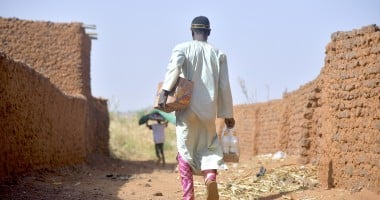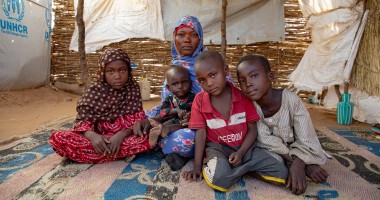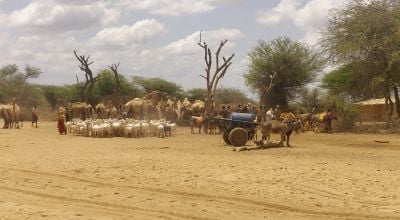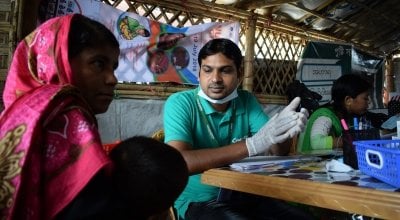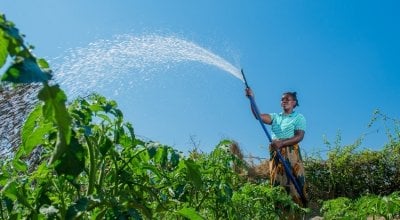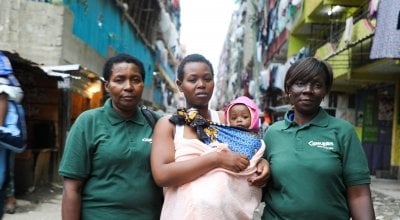
Read our 2024 annual report

Knowledge Hub
Why are we in Pakistan? Pakistan, with a population of 252 million people and the second-highest population growth rate in South Asia, faces multiple challenges, including natural disasters, climate change, and food insecurity. Between November 2024 and March 2025, approximately 11 million people in Pakistan’s rural population experienced high levels of acute food insecurity, classified in IPC Phase 3 or above. This includes 1.7 million people in IPC Phase 4 (Emergency).
Pakistan sits at the nexus of the climate crisis, poverty, and hunger
The world’s fifth-largest country by population, Pakistan, is on the frontlines of the climate crisis, facing both devastating droughts and floods.
In 2024, the country faced protracted droughts in two of its six provinces, while still recovering from the catastrophic floods of 2022 - these had a lasting impact on one-third of the population.
From March to September 2024, Pakistan was hit by severe floods caused by heavy rainfall and flash floods, resulting in fatalities, destruction of assets, infrastructure, and livelihoods, along with diseases, and displacement for people with little buffers.
Pakistan also faced one of its most intense heat waves with temperatures soaring up to 49°C (120°F) in Sindh province. It also ranks 21 with a high-risk score of 6.4 on the Inform-Risk which measures hazards, vulnerability and coping mechanisms. Furthermore, the displacement of 1.36 million refugees from Afghanistan has led to many refugee families living in difficult circumstances for generations, with their futures uncertain.
Latest achievements
Emergency response
In 2024, we implemented emergency response activities in 13 flood-affected districts across four provinces and the northern region of Gilgit-Baltistan (GB), reaching 753,071 individuals (Female: 366,270, Male: 386,801).
Health and Nutrition
Multipurpose Cash Assistance (MPCA)


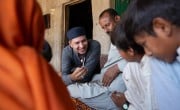


How we're helping Pakistan
We are working hard to combat suffering and build resilience in Pakistan. We are doing this by establishing programmes which will build livelihoods, respond to emergencies, and combat hunger and malnutrition.
Latest from Pakistan
Organisations who fund us

Other ways to help
Corporate support
Is your company interested in working together for a common cause?
Fundraise for Concern
From mountain trekking to marathon running, cake sales to table quizzes, there are lots of ways you can support our work.
Buy a gift
With an extensive range of alternative gifts, we have something to suit everybody.
Leave a gift in your will
Leave the world a better place with a life-changing legacy.
Volunteer with Concern
The lots of ways to get involved with our work as a volunteer
School fundraising
Without the generous support from schools, we wouldn't be able to do the work that we do.



